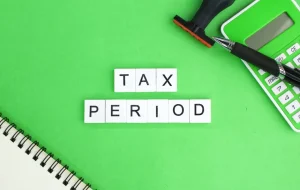Beyond market trends, investors keen on maximizing returns delve into the world of stock picking. The right selections can be instrumental in catapulting your wealth.
In the latest session, Dine Brands Global Inc (NYSE: DIN) closed at $23.68 up 1.63% from its previous closing price of $23.3. In other words, the price has increased by $1.63 from its previous closing price. On the day, 0.56 million shares were traded. DIN stock price reached its highest trading level at $23.98 during the session, while it also had its lowest trading level at $23.238.
Ratios:
For a deeper understanding of Dine Brands Global Inc’s stock, let’s take a closer look at its various ratios. It provided that stocks Price–to–Cash (P/C) ratio for the trailing twelve months (TTM) is standing at 1.51 whereas its Price-to-Free Cash Flow (P/FCF) for the term is 3.94. For the most recent quarter (mrq), Quick Ratio is recorded 0.86 and its Current Ratio is at 0.86.
Upgrades & Downgrades
In addition, analysts’ ratings and any changes thereto give investors an idea of the stock’s future direction. In the most recent recommendation for the company, Wedbush on February 28, 2025, Downgraded its rating to Neutral and sets its target price to $28 from $47 previously.
On January 07, 2025, UBS Downgraded its rating to Neutral which previously was Buy and also lowered its target price recommendation from $44 to $32. Barclays Downgraded its Overweight to Equal Weight on January 07, 2025, whereas the target price for the stock was revised from $43 to $32.
Insider Transactions:
Additionally, insider trades can be beneficial to investors who want to learn what the management thinks about stock prices in the future. A recent insider transaction in this stock occurred on Aug 21 ’25 when Chang Vance YuWen bought 2,340 shares for $21.10 per share. The transaction valued at 49,374 led to the insider holds 54,130 shares of the business.
Peyton John W. bought 4,523 shares of DIN for $99,990 on Aug 19 ’25. The Chief Executive Officer now owns 189,563 shares after completing the transaction at $22.11 per share.
Valuation Measures:
Investors should consider key stock statistics when deciding whether to invest or divest. In the wake of the recent closing price, DIN now has a Market Capitalization of 364181824 and an Enterprise Value of 1810369408. As of this moment, Dine’s Price-to-Earnings (P/E) ratio for their current fiscal year is 7.91, and their Forward P/E ratio for the next fiscal year is 5.14. The expected Price-to-Earnings-to-Growth (PEG) calculation for the next 5 years is 5.07. For the stock, the TTM Price-to-Sale (P/S) ratio is 0.43. Its current Enterprise Value per Revenue stands at 2.142 whereas that against EBITDA is 9.485.
Stock Price History:
The Beta on a monthly basis for DIN is 1.06, which has changed by -0.18597454 over the last 52 weeks, in comparison to a change of 0.18469036 over the same period for the S&P500. Over the past 52 weeks, DIN has reached a high of $37.44, while it has fallen to a 52-week low of $18.63. The 50-Day Moving Average of the stock is 1.74%, while the 200-Day Moving Average is calculated to be -7.87%.
Shares Statistics:
For the past three months, DIN has traded an average of 470.46K shares per day and 497670 over the past ten days. A total of 15.38M shares are outstanding, with a floating share count of 14.78M. Insiders hold about 3.92% of the company’s shares, while institutions hold 84.60% stake in the company. Shares short for DIN as of 1755216000 were 2512480 with a Short Ratio of 5.34, compared to 1752537600 on 2243966. Therefore, it implies a Short% of Shares Outstanding of 2512480 and a Short% of Float of 18.89.
Dividends & Splits
According to the company, the forward annual dividend rate for DIN is 2.04, from 2.04 in the trailing year. Against a Trailing Annual Dividend Yield of 0.08755365The stock’s 5-year Average Dividend Yield is 4.77. The current Payout Ratio is 48.37% for DIN, which recently paid a dividend on 2025-06-20 with an ex-dividend date of 2025-09-19. Stock splits for the company last occurred on 1999-05-28 when the company split stock in a 2:1 ratio.









